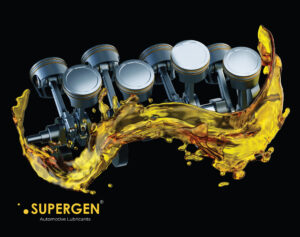The commercial vehicle industry is the backbone of global commerce, ensuring the smooth and timely transportation of goods across vast distances.
With the rising demand for efficiency, durability, and environmental sustainability, the development of innovative engine oils has become crucial.
These advanced lubricants not only improve engine performance but also reduce emissions, enhance fuel economy, and extend the life of vehicles.
Let’s explore how innovative engine oils are setting new standards for commercial vehicles, examining their key features, benefits, and the latest technological advancements shaping the future of the industry.
Understanding the Role of Engine Oils in Commercial Vehicles
Engine oils play a critical role in maintaining the health and efficiency of commercial vehicles. Given the intense operating conditions of these vehicles, including heavy loads, long distances, and varying temperatures, a high-performance lubricant is essential.
Key Functions of Engine Oils
- Lubrication: Engine oils form a protective film between moving parts, reducing friction and wear.
- Cooling: By minimizing friction and carrying heat away from critical components, engine oils help in temperature regulation.
- Cleaning: Oils carry away debris and contaminants, preventing sludge and deposit buildup.
- Corrosion Protection: Advanced additives in modern oils protect engine components from rust and corrosion.
- Sealing: Engine oils aid in sealing gaps between piston rings and cylinder walls, improving engine compression and efficiency.
Innovative Features of Modern Engine Oils
The evolution of engine oils is driven by technological advancements and regulatory changes. Modern engine oils now boast several innovative features that are transforming the performance and sustainability of commercial vehicles.
1. Synthetic Base Oils
Unlike traditional mineral oils, synthetic base oils are engineered to provide superior performance. They offer:
- Better viscosity stability across a wide temperature range
- Enhanced thermal and oxidative stability
- Reduced oil consumption due to lower volatility
2. Advanced Additive Packages
Innovative engine oils are formulated with advanced additive packages, including:
- Detergents: Keep engine parts clean by preventing deposit formation.
- Dispersants: Suspend soot and other contaminants, preventing sludge buildup.
- Anti-wear agents: Protect critical engine components under high-pressure conditions.
- Friction modifiers: Enhance fuel economy by reducing friction.
3. Low-Viscosity Formulations
Modern engine oils feature low-viscosity formulations that reduce internal engine friction. This improvement leads to:
- Increased fuel efficiency
- Lower carbon emissions
- Improved cold start performance
4. Extended Drain Intervals
One of the most significant advancements in engine oils for commercial vehicles is the ability to extend drain intervals. This means fewer oil changes, resulting in:
- Reduced maintenance costs
- Less downtime for vehicles
- Lower environmental impact due to reduced oil waste
5. Bio-Based and Eco-Friendly Oils
Sustainability is a key focus in the development of innovative engine oils. Bio-based and eco-friendly lubricants are made from renewable resources and designed to minimize environmental harm. These oils offer:
- Biodegradability
- Reduced greenhouse gas emissions
- Compatibility with modern emission control systems
Benefits of Using Innovative Engine Oils
1. Enhanced Engine Performance and Longevity
High-quality engine oils reduce wear and tear, ensuring that engines operate at peak performance for longer periods. This leads to fewer breakdowns and lower repair costs.
2. Improved Fuel Economy
Low-friction formulations and advanced additives help in improving fuel efficiency, which is a critical factor for commercial fleets aiming to reduce operational costs.
3. Reduced Emissions
Innovative oils with low-viscosity and high-performance additives help commercial vehicles meet stringent emission standards by minimizing exhaust pollutants.
4. Lower Maintenance Costs
Extended drain intervals and better engine protection result in fewer oil changes and lower maintenance expenses over the vehicle’s lifetime.
5. Sustainability and Compliance
As governments worldwide introduce stricter environmental regulations, using innovative engine oils helps fleet operators stay compliant while reducing their carbon footprint.
Technological Trends Shaping the Future of Engine Oils
1. Nanotechnology in Lubricants
Nanotechnology is being leveraged to develop engine oils with nanoparticles that provide superior lubrication and wear protection. These oils offer:
- Enhanced load-carrying capacity
- Better heat dissipation
- Reduced friction and wear
2. Smart Lubricants
The concept of smart lubricants involves oils embedded with sensors or smart additives that can monitor oil condition in real-time. Benefits include:
- Predictive maintenance capabilities
- Optimized oil change intervals
- Improved overall fleet management
3. Hybrid-Compatible Engine Oils
With the rise of hybrid commercial vehicles, there is a growing need for specialized engine oils. These lubricants are designed to meet the unique requirements of hybrid powertrains, such as:
- Enhanced electric motor cooling
- Compatibility with regenerative braking systems
- Improved fuel efficiency in stop-start conditions
4. Zero-SAPS Oils
Zero-SAPS (Sulphated Ash, Phosphorus, and Sulphur) oils are being developed to protect modern exhaust after-treatment systems, such as diesel particulate filters (DPFs) and selective catalytic reduction (SCR) systems. These oils help in:
- Prolonging the life of emission control devices
- Reducing maintenance costs related to after-treatment systems
Best Practices for Fleet Operators
To maximize the benefits of innovative engine oils, fleet operators should follow these best practices:
- Choose the Right Oil: Select engine oils that meet the specifications recommended by the vehicle manufacturer.
- Monitor Oil Condition: Use oil analysis programs to monitor oil health and optimize drain intervals.
- Train Maintenance Staff: Ensure that maintenance personnel are trained on the latest lubrication technologies and practices.
- Stay Updated on Regulations: Keep track of changes in emission and fuel economy regulations to ensure compliance.
The Bottom Line
Innovative engine oils are redefining performance standards for commercial vehicles.
By enhancing fuel efficiency, reducing emissions, and extending engine life, these advanced lubricants are helping fleet operators achieve greater operational efficiency and sustainability.
As technology continues to evolve, we can expect further breakthroughs in engine oil formulations.
For fleet operators, investing in high-quality, innovative engine oils is not just a matter of meeting regulatory requirements but also a strategic move towards long-term profitability and environmental responsibility.
By staying informed about the latest trends and adopting best practices, commercial vehicle operators can ensure that they remain competitive in an increasingly demanding industry.
FAQ’s
- What are the main benefits of using innovative engine oils in commercial vehicles?
Innovative engine oils enhance fuel efficiency, extend engine life, reduce maintenance costs, and help meet emission regulations. - How do advanced additives improve engine oil performance?
Additives such as detergents, dispersants, and anti-wear agents help keep the engine clean, reduce wear, and improve overall performance. - What are low-viscosity engine oils, and why are they important?
Low-viscosity oils reduce internal engine friction, leading to better fuel economy and lower emissions. - How can fleet operators ensure optimal engine oil performance?
By selecting the right oil, monitoring oil condition, and adhering to recommended drain intervals, fleet operators can maximize benefits. - Are bio-based engine oils suitable for all commercial vehicles?
Yes, many bio-based oils are designed to meet the performance needs of modern commercial engines while reducing environmental impact.








